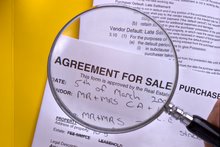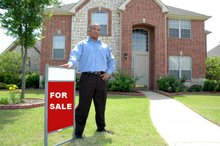Watch the market when investing in real estate
In A 'Strong' Market
If the housing market is 'strong' you stand a better chance of selling a property for the price you want. But remember, if you sell in a 'strong' market, chances are, you will be buying in the same 'strong' market. That means you may have to respond quickly to offers and compete aggressively with other buyers.
In A 'Weak' Market
If the property market is 'weak' your home may take longer to sell and the price may not meet your expectations. To get a decent price you may have to spend money to make improvements to your property. You might also need to offer incentives to compete with other properties on the market. Remember though, you may also be buying in a 'weak' market, so could potentially pick up a bargain. Take advantage of the cyclical nature of the real estate market and stay put (if you can) until the real estate market improves.
Think about selling when you are buying.
There is an old saying in real estate, "when buying a property... always begin with the end in mind." This is true because, eventually, every property gets resold. So, before buying your next home, it is important to consider its likely value, if you to try and resell the property either now or in the future.
What seems like a bargain when you buy, might become a nightmare when you come to sell the property.
Selling your home in a buoyant real estate market should be relatively easy, regardless of its location or condition, as long as you hire a competent real estate agent and price the property correctly.
But, selling your home in a tight real estate market is a whole different ball game. Buyers become more selective. Know what is a 'bad' location.
Perhaps the word 'bad' is a little harsh. We are really talking about negative factors that could affect the sale-ability or price of a property.
You've probably heard the saying "buy the worst house in the best street, not the best house in the worst street." This is very true if you want your property to increase in value over time.
Remember: You can change everything about a property except its location.
Buying a home in a bad location can be fraught with problems when you come to resell. A less desirable location usually results in a lower selling price.
Here are some examples of locations that can affect resale:
· Located on a main feeder street
· Near night life activities
· Under an airport flight path
· Close to a freeway, expressway or railroad
· In a rundown block or neighborhood
· Next to a school yard playground· In or near a gang territory
· Next to apartments or commercial/industrial properties
· Near a gas station, power pylons, garbage or toxic waste dump
· In a town or city affected by the closing of a major employer
· Near factories, farms and processing plants (smells can be a problem)
· Below the road, damp, shady, cold properties
Know what increases the value of a property.
The value of a home is affected by recent sales of the similar neighbouring homes in the market. Ideally, an appraiser will compare sales of properties of the same size, age, condition, room count, in the same area and with similar amenities. Finding a perfect comparison rarely happens, so adjustments have to be made, based on what the market will pay a higher price for.
Additional features and benefits can increase the value of a particular property. Things like: extra square footage, if its well maintained inside and out, bedroom number, heating system, air conditioning, parking facilities, decor, swimming pool, views, sun, access, lot size, location and so on.
But, what happens outside the property boundary can also dramatically influence the value of the home you are buying.











No comments:
Post a Comment